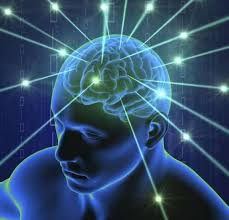
Breaking News
Wish List for America for 2026
 If You Grew Up In The 1970s, You Probably Possess These Rare Traits
If You Grew Up In The 1970s, You Probably Possess These Rare Traits
 EVEN More SUPER SHADY Financial Dealings At TPUSA!
EVEN More SUPER SHADY Financial Dealings At TPUSA!
 British woman warns American about the Rise of Islam...
British woman warns American about the Rise of Islam...
Top Tech News
 Laser weapons go mobile on US Army small vehicles
Laser weapons go mobile on US Army small vehicles
 EngineAI T800: Born to Disrupt! #EngineAI #robotics #newtechnology #newproduct
EngineAI T800: Born to Disrupt! #EngineAI #robotics #newtechnology #newproduct
 This Silicon Anode Breakthrough Could Mark A Turning Point For EV Batteries [Update]
This Silicon Anode Breakthrough Could Mark A Turning Point For EV Batteries [Update]
 Travel gadget promises to dry and iron your clothes – totally hands-free
Travel gadget promises to dry and iron your clothes – totally hands-free
 Perfect Aircrete, Kitchen Ingredients.
Perfect Aircrete, Kitchen Ingredients.
 Futuristic pixel-raising display lets you feel what's onscreen
Futuristic pixel-raising display lets you feel what's onscreen
 Cutting-Edge Facility Generates Pure Water and Hydrogen Fuel from Seawater for Mere Pennies
Cutting-Edge Facility Generates Pure Water and Hydrogen Fuel from Seawater for Mere Pennies
 This tiny dev board is packed with features for ambitious makers
This tiny dev board is packed with features for ambitious makers
 Scientists Discover Gel to Regrow Tooth Enamel
Scientists Discover Gel to Regrow Tooth Enamel
 Vitamin C and Dandelion Root Killing Cancer Cells -- as Former CDC Director Calls for COVID-19...
Vitamin C and Dandelion Root Killing Cancer Cells -- as Former CDC Director Calls for COVID-19...
Why our brains may be 100 times more powerful than believed

The finding implies that our brains are both analog and digital computers and could lead to better ways to treat neurological disorders.
The focus of the study was the dendrites, long branch-like structures that attach to a roundish body called the soma to form neurons. It was previously believed that dendrites were nothing more than conduits that sent spikes of electrical activity generated in the soma to other neurons. But the study has shown that the dendrites themselves are highly active, sending spikes of their own at a rate 10 times that previously believed.
The finding runs counter to the long-held belief that somatic spikes were the main way we learn and form memories and perceptions.



